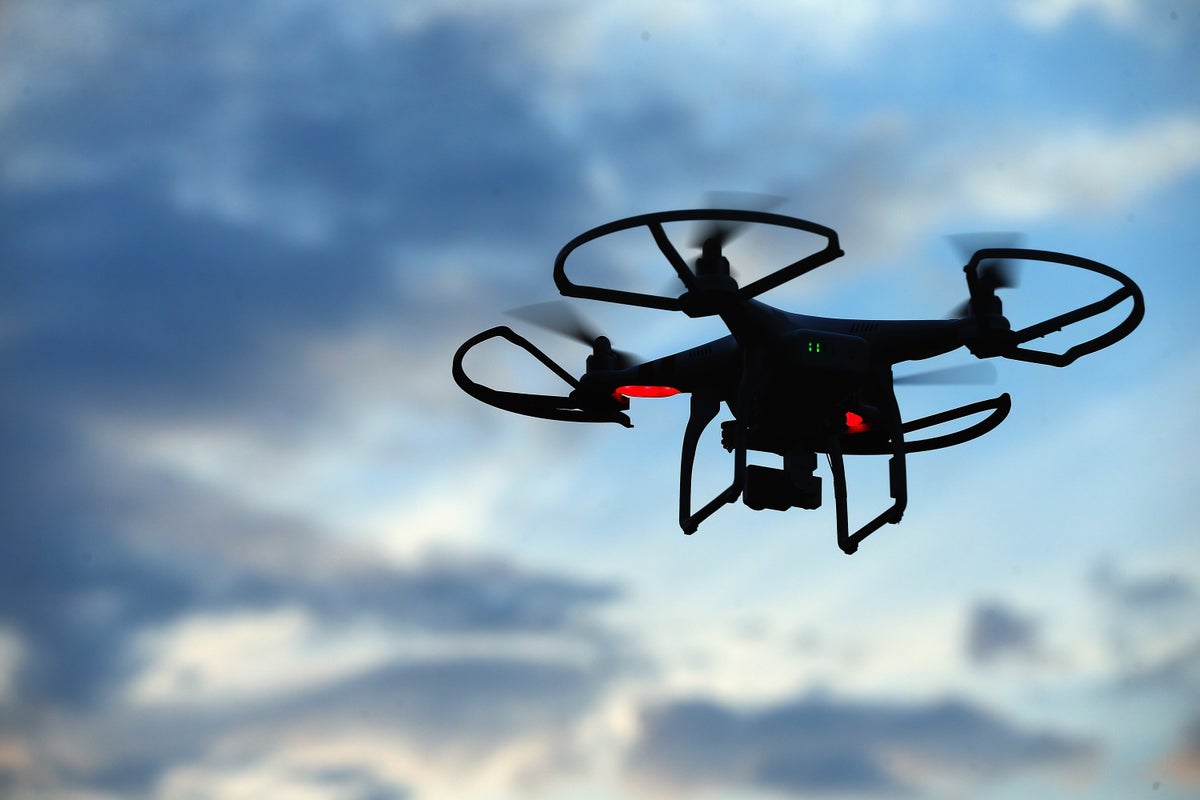
Those attending outdoor parties or barbecues in New York City this weekend may notice an uninvited guest looming over their festivities: a police surveillance drone.
The New York City police department plans to pilot the unmanned aircraft in response to complaints about large gatherings, including private events, over Labor Day weekend, officials announced Thursday.
“If a caller states there’s a large crowd, a large party in a backyard, we’re going to be utilizing our assets to go up and go check on the party,” Kaz Daughtry, the assistant NYPD Commissioner, said at a press conference.
The plan drew immediate backlash from privacy and civil liberties advocates, raising questions about whether such drone use violated existing laws for police surveillance.
“It’s a troubling announcement and it flies in the face of the POST Act,” said Daniel Schwarz, a privacy and technology strategist at the New York Civil Liberties Union, referring to a 2020 city law that requires the NYPD to disclose its surveillance tactics. “Deploying drones in this way is a sci-fi-inspired scenario.”
The move was announced during a security briefing focused on J’ouvert, an annual Caribbean festival marking the end of slavery that brings thousands of revellers and a heavy police presence to the streets of Brooklyn. Daughtry said the drones would respond to “non-priority and priority calls” beyond the parade route.
Like many cities, New York is increasingly relying on drones for policing purposes. Data maintained by the city shows the police department has used drones for public safety or emergency purposes 124 times this year, up from just four times in all of 2022. They were spotted in the skies after a parking garage collapse earlier this year and when a giveaway event devolved into teenage mayhem.
Mayor Eric Adams, a former police captain, has said he wants to see police further embrace the “endless” potential of drones, citing Israel’s use of the technology as a blueprint after visiting the country last week.
But as the technology proliferates, privacy advocates say regulations have not kept up, opening the door to intrusive surveillance that would be illegal if conducted by a human police officer.
“One of the biggest concerns with the rush to roll out new forms of aerial surveillance is how few protections we have against seeing these cameras aimed at our backyards or even our bedrooms,” said Albert Fox Cahn, the executive director of the Surveillance Technology Oversight Project (STOP).
The NYPD did not respond to an email seeking further information about its drone policies.
In response to a request for comment, a spokesperson for Mayor Adams shared a link to new guidelines that make it easier for private drone operators to fly in the city, but which do not address whether the NYPD has any policies for drone surveillance.
Around 1,400 police departments across the country are currently using drones in some form, according to a recent report from the American Civil Liberty Union. Under federal rules, they are generally limited to flying within the operator’s line of sight, though many departments have requested exemptions. The report predicted the use of drones was “poised to explode” among police departments.
Cahn, the privacy advocate, said city officials should be more transparent with the public about how police are currently using drones, with clear guardrails that prevent surveillance overreach in the future.
“Clearly, flying a drone over a backyard barbecue is a step too far for many New Yorkers," Cahn said.







